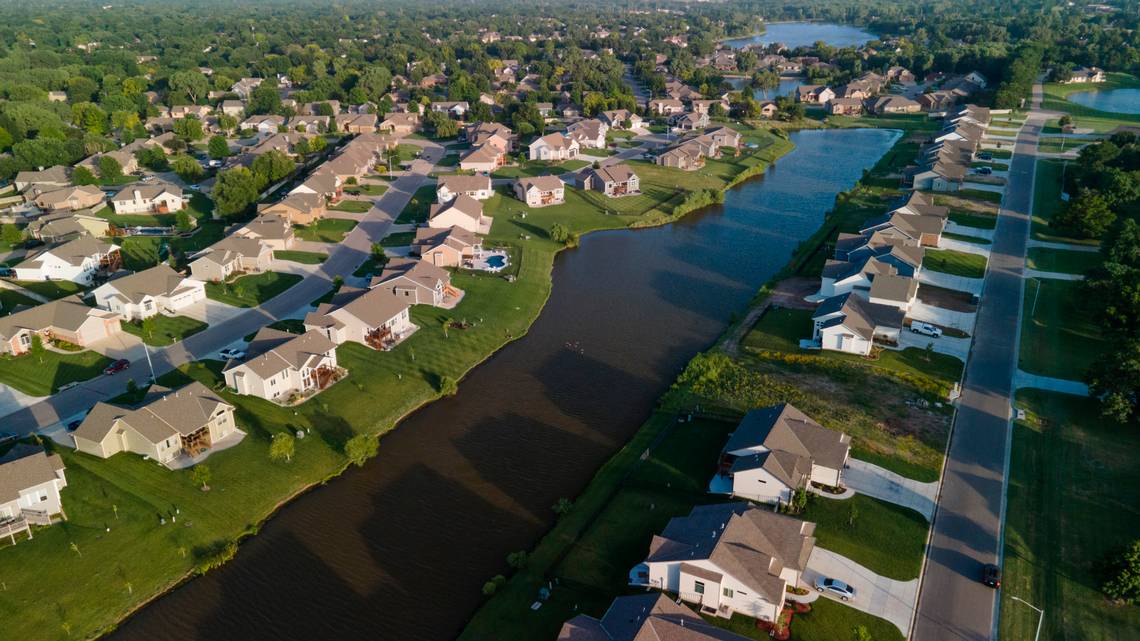Property owners in Sedgwick County are unlikely to see any significant county property tax relief in the next year. A public vote on a new sales tax to support county arts, culture and recreation programming – while lowering the property tax mill levy – now likely won’t happen until 2026. Commissioners had planned to present voters with the ballot question by no later than fall 2025. But the Wichita school district is having a public vote on a bond issue in February and that made things difficult, County Commission chairman Ryan Baty said.
“Anything that we’re doing with property tax and sales tax should not be confused with what’s happening with the school bond and some of the other measures,” Baty said. “I’m in no rush for that. I really want to vet this out with the community.”
At the same time, commissioners are also looking at shifting around existing sales tax dollars to pay for cultural programming. They will vote on that Wednesday. The Sedgwick County Zoo, Exploration Place science museum, the Kansas African American Museum and the county parks department all took cuts in the 2025 budget. The Eagle previously reported that funding those programs through a new sales tax would allow the county to lower its property tax levy by between two and a half and three mills. The county has discussed an eighth of a cent sales tax to help fund cultural programs, which would bring in about $18 million in revenue – about the same amount the county spends annually on those programs. But it’s unclear exactly what voters could see on their ballots.
“That discussion has not been fully vetted or materialized,” Baty said. “These are just ideas that have been floated and ideas that we are considering. There is no formal plan. There is no formal action.” The county would have to go to state lawmakers for approval to put a sales tax question on the ballot – which is something that not all commissioners were confident lawmakers would approve. “I’m gonna tell you right now it’s dead capital. D-E-A-D with an exclamation point. It’s never going to go anywhere,” County Commissioner Jim Howell said. “It’s dead because I’m not going to advocate for it when people call it a tax increase.” Sedgwick County is also seeking buy-in from several other cities as it looks for areas where property taxes could be lowered – mainly by asking the county’s 19 other cities to lower their mill levies in exchange for some revenue from the new sales tax.
That conversation is still up in the air, but Baty said the county is also looking at areas where it can consolidate with other cities, including Wichita, which expects a several million dollar deficit in the coming years, in order to save money. Baty invited the cities for a meeting in August and plans another one in December. “Let’s see if there’s better ways to collaborate, and if there’s ways we can jointly work together to lower the cost of government and reduce property taxes.” Shifting county sales tax money As talks continue with other cities about a possible sales tax and lowering property taxes, Sedgwick County is looking at its own tax policies. The county already levies a one percent sales tax, approved by voters in 1985. Half of the annual revenue from that tax, about $18 million, goes to pay for roads and other infrastructure costs across the county. The other half goes to the general fund. Howell said that has prevented the county from going to a higher mill levy.
“If it wasn’t for the sales tax being poured into [the general fund],” Howell said, “we would still be funding those things, but we’d have to do it completely from property tax.” Now, commissioners will vote Wednesday whether that half in the general fund should go toward quality of life programs instead of using property taxes to pay for them. “I knock on doors running for this office,” Howell said. “If I tell them not one penny of your property taxes funds anything other than core functions of government, it satisfies them.” That move won’t bring in property tax relief for residents, though, since the money is already used for property tax relief. “I believe that property taxes should only be used for core services of county government, so primarily public safety, public health and public works,” Baty said. “This is about being consistent to the things I’ve been saying about what property tax dollars should be used for, and what sales tax dollars should be used for.”

A neighborhood near 119th St. and Central. Tax appraisals are up this year for 80% of Sedgwick County’s 182,800 residential parcels, the county appraiser told the County Commission. The average increase in value is 10%. Jaime Green The Wichita Eagle Read more at: https://www.kansas.com/news/politics-government/article296199474.html#storylink=cpy








